Despite losses running into billions, Kashmiri businesses determined to support resistance movement
The valley was under curfew since July 9 for 51 consecutive days
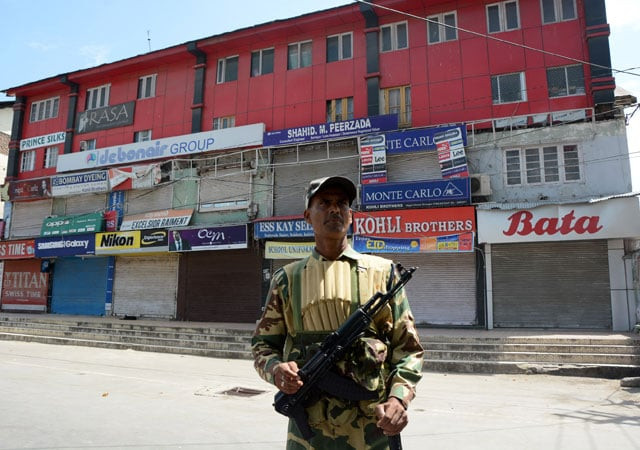
The business fraternity across Kashmir has extended its full support to the joint resistance leadership led by Syed Ali Geelani. PHOTO: Omer Babri
The valley was under curfew since July 9 for 51 consecutive days. Though Kashmiris have witnessed similar restrictions many times ever since the armed struggle against the Indian rule erupted in 1989, this is the first time the curfew continued for over two months.
PM's special envoy highlights held-Kashmir rights violations in Geneva
Although the recent uprising has already entered the third month, there seems to be no ‘fatigue’ among the people as the Indian government may have expected. Every day, reports of massive pro-freedom rallies emerge from different parts of Kashmir. Till date, 90 civilians have been killed and over 10,000 have been injured by the police and security forces; 800 of the injured – mostly youth – are victims of pellet shots.
United in letter and spirit
The business fraternity across Kashmir has extended its full support to the joint resistance leadership led by Syed Ali Geelani, who heads a faction of All Parties Hurriyat Conference (APHC) and is strictly following the protests calendar issued by them.
 PHOTO: Omer Babri
PHOTO: Omer BabriDuring the day, markets remain closed and shutters are lifted only after 6pm as per the APHC directives. For most days in the past two months, markets didn’t open even after 6pm as strict curfew was imposed by the government.
Although traders have faced huge losses, they are determined to follow the shutdown schedule. Speaking to The Express Tribune, Mohammad Yasin Khan – President of Kashmir Traders and Manufacturers and Chairman of the Kashmir Economic Alliance – says they are not only businessmen but also common Kashmiris with families of their own. “How does the government or anyone for that matter expect us to open the markets when our children are being killed and maimed by the security forces on the streets of Kashmir,” he asks.
“We stand together in this hour of crisis and we will follow our resistance leadership in letter and spirit. They have our full support and we will adhere to their protest schedule,” Khan says.
 PHOTO: Omer Babri
PHOTO: Omer BabriHe further grieves that the Indian government and senior leaders of Bharatiya Janta Party keeps on repeating words like “insaniyat” (humanity) when they talk about the present situation in Kashmir but in reality, they don’t show any insaniyat while dealing with the people or resolving the issue.
“On one side, the government forces continue to kill innocent people but on the other hand, the state and the central government talk about peace,” he says, adding that “if the Indian government is serious about the Kashmir issue, it should start a meaningful dialogue with all the stakeholders in the state.”
The chairman also informs in the past two months, Kashmir has faced an estimated loss worth Rs80 billion. “On an average, the Kashmir valley faces a daily loss worth Rs1.2 billion to Rs1.35 billion,” he says.
Farmers’ nightmare
It is harvest season in Kashmir and people associated with the agribusiness are busy harvesting crops, mainly apple and paddy. In 2015-16, apple production in the state was 1.943 million metric tonnes. Ninety per cent of Kashmiri apple is transported through trucks to different parts of India and some varieties are also exported to Bangladesh.
Tanks and guns won’t stop Kashmir struggle, says Imran
According to Bashir Ahmad Bashir, chairman of All Kashmir Fruit Growers and Dealers Association, the fruit industry – which contributes Rs70 billion a year to the state’s gross domestic product (GDP) – has already faced an estimated loss of over Rs9 billion in the past two months.
 PHOTO: Omer Babri
PHOTO: Omer Babri“Due to curfew and restrictions imposed by the government, growers are not able to transport their fruits to the wholesale markets and the losses will further increase if the situation remains the same,” he fears.
During period of normalcy, Bashir says fruit markets across Kashmir remain open from 4am to 9pm but ever since the uprising, markets only work for three hours from 5am to 8am. The fruit industry, just like the rest of the businesses, is also following the protest schedule of APHC leaders. Although the government wants traders to keep markets open from morning till evening, Bashir asserts they have refused to conform.
“Instead of keeping the markets open from 5am to 8am, the government wants us to operate between 10am and 6pm but we refused to follow their dictate. They basically want us to not follow the Hurriyat calendar but we will stick to what our leaders will tell us to do,” he says. “Many traders used to transport their fruits during dusk but security forces this time have imposed restrictions on movement at night. This has resulted in large quantity of fruits going to waste as they cannot be transported to markets on time,” he adds.
No tourists to wander the Valley
Tourism industry which plays an important role in Kashmir’s economy has also been hit badly during the past two months. The industry, which is one of the major sources of income and employment in the valley, contributes around 20% to the state’s GDP.
 PHOTO: Muneeb-Ul-Islam
PHOTO: Muneeb-Ul-IslamPresident of Kashmir Hoteliers Association Javaid Burza says even though people associated with the tourism industry in Kashmir have faced huge losses, their primary concern is the killings of unarmed protesters, which he says should stop.
“Business losses are temporary and can be recovered but it is the loss of our people which cannot be recovered,” Burza laments. “There should be an end to the killing of civilians and a dialogue process for lasting peace should be started,” he makes a plea.
Former chairman of the Houseboat Owners Association of Kashmir Azim Touman says since Eidul Fitr, three tourists have stayed in his houseboats in Dal Lake in Srinagar. During relatively peaceful times, he says the number would be around 300 to 400 tourist.
“Tourists will not visit Kashmir in such terrible times. They come for enjoyment; what will they do when everything is shut there is so much fear,” he says.
Touman further adds that the Indian prime minister says he wants the youth in Kashmir to have laptops and notebooks in their hands instead of stones but he asks what will a child blinded by pellets – fired by Indian forces – do with a laptop or a notebook. “Our Kashmir was heaven but it is no less than a hell now,” he grieves.
Of broken promises and mistrust
An all-party delegation, led by Indian Home Minister Rajnath Singh, recently visited the Kashmir Valley but couldn’t break the ice. Not only the pro-freedom leaders but people associated with tourism, trade, commerce and the civil society also refused to meet them.
Cpne event: ‘Strong Pakistan needed for Kashmir’
Rauf Tramboo, who is the President of Adventure Tourism Operators of Kashmir says, “I met a similar delegation in 2010 but not this time simply because of the 2010 experience. Many promises were made but nothing happened so there is no point in meeting such delegations.”
 PHOTO: Muneeb-Ul-Islam
PHOTO: Muneeb-Ul-IslamOver the years, in 2008, 2009 and 2010, delegations appointed by the Indian government have visited Kashmir and people welcomed them, says Tramboo, but nothing has ever changed on the ground. “Today, there are no tourists in Kashmir and our business is at zero but we will not succumb. This time, we have decided that we will bear the losses. We want a solution to Kashmir’s problem. What we want is lasting peace, not a brief lull – which most politicians often mistakenly call peace and normalcy,” he says.
Bilal Kuchay is a freelance journalist, who has been featured in Kindle Magazine, Himal Southasian and The Kashmir Monitor. He tweets as @BilalKuchayj

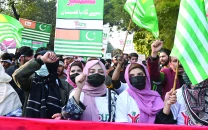
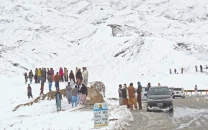
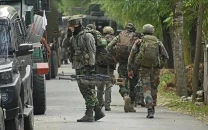
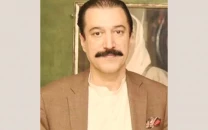
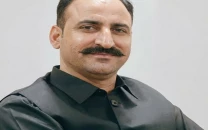













COMMENTS
Comments are moderated and generally will be posted if they are on-topic and not abusive.
For more information, please see our Comments FAQ